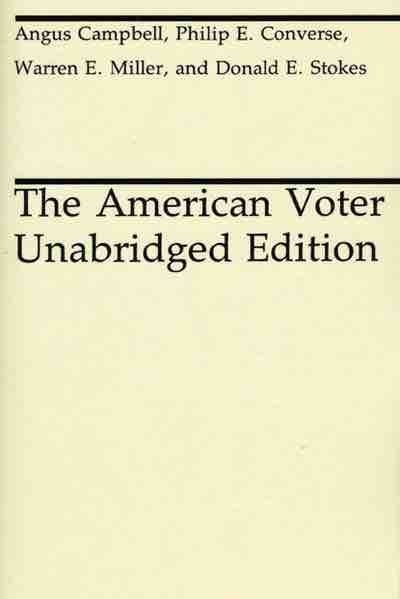The American National Election Studies (ANES) is the leading academically-run national survey of voters in the United States, conducted before and after every presidential election. Though the ANES was formally established by a National Science Foundation grant in 1977, the data are a continuation of studies going back to 1948. The study has been based at the University of Michigan since its origin and, since 2005, has been run in partnership with Stanford University. Its principal investigators for the first four years of the partnership were Arthur Lupia and Jon Krosnick. Its current principal investigators are Vincent Hutchings, Gary Segura, and Simon Jackman.
The consistency of the studies, which includes asking the same questions repeatedly over time, makes it very useful for academic research. As a result it is frequently cited in works of political science. Early ANES data were the basis for The American Voter a seminal study of voting behavior in the United States, by Angus Campbell, Philip Converse, Warren Miller, and Donald Stokes, colleagues at the University of Michigan. Based on one of the first comprehensive studies of election survey data (what eventually became the National Election Studies), came the conclusion that most voters cast their ballots primarily on the basis of partisan identification (which is often simply inherited from their parents), and that independent voters are actually the least involved in and attentive to politics.

The American Voter
An image of the publication that was influenced by early ANES data.
Today ANES data are used by numerous scholars, students, and journalists. It is widely considered the "gold standard" of election studies.
The ANES also has a long history of innovation. In 2006, it opened the ANES Online Commons, becoming the first large-scale academic survey to allow interested scholars and survey professionals to propose questions for future ANES surveys.